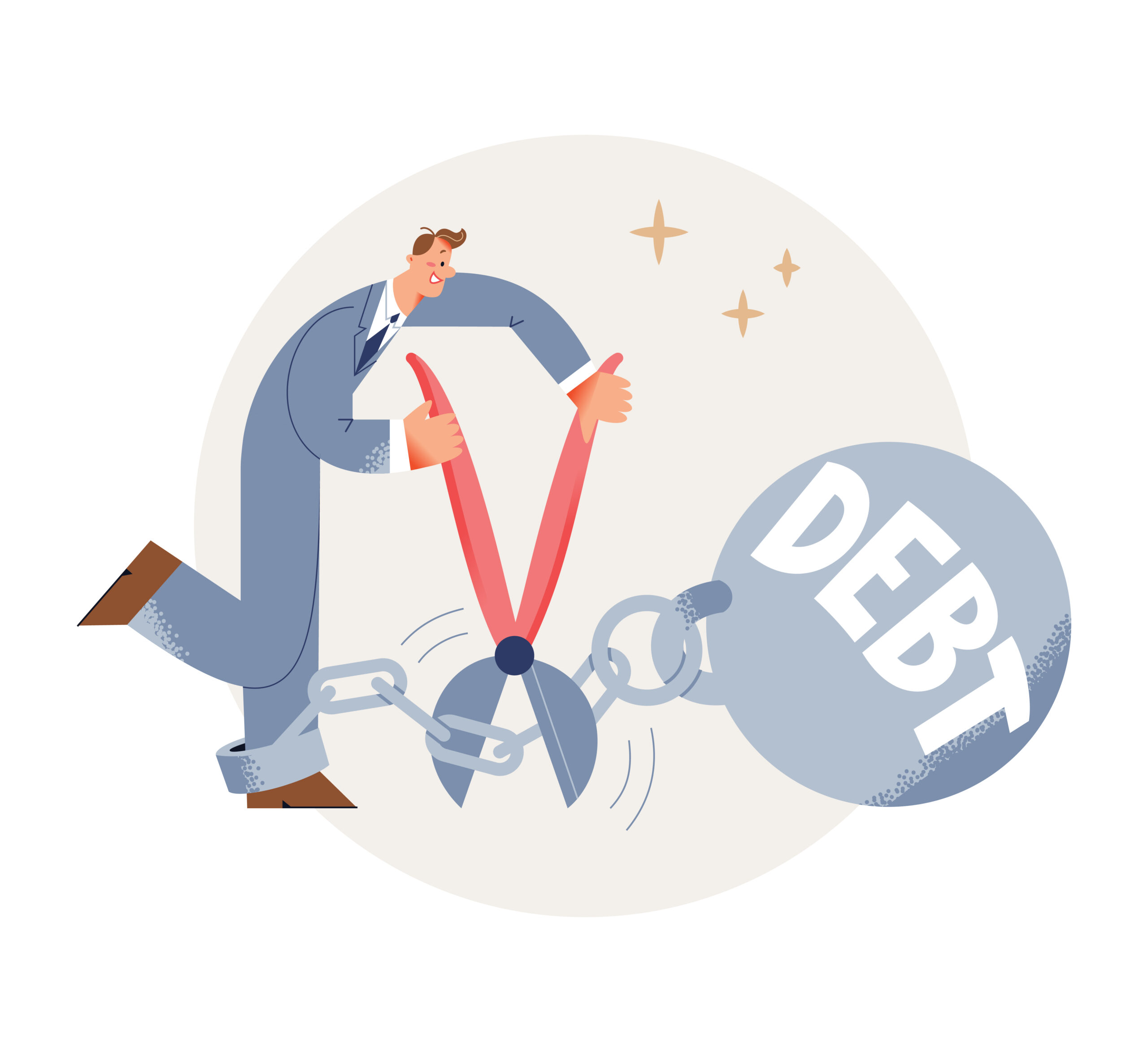Debt consolidation is a financial strategy many people consider when they feel overwhelmed by multiple debts. It can simplify your finances by combining multiple debts into a single payment, often with a lower interest rate. But is it the right choice for you? In this article, we’ll explore what debt consolidation is, how it works, its benefits, and its potential drawbacks. By the end of this guide, you’ll have a clearer understanding of whether debt consolidation might be the right path for you.
What is Debt Consolidation?
Debt consolidation is the process of combining several debts into a single loan with one monthly payment. This can include credit card balances, personal loans, medical bills, and other high-interest debts. The goal is to make your debt easier to manage and, in many cases, to reduce your overall interest rate, which can save you money over time.
How Does Debt Consolidation Work?
Debt consolidation works by taking out a new loan to pay off your existing debts. This new loan is typically at a lower interest rate, which can help you pay off your debt faster and with less total interest. Here’s a simple breakdown of how it works:
- Assess Your Debts: Calculate the total amount of your debts, including interest rates and monthly payments.
- Choose a Consolidation Method: Options include personal loans, balance transfer credit cards, home equity loans, or a debt management plan.
- Apply for a New Loan: Use the loan to pay off all your existing debts.
- Make a Single Monthly Payment: Instead of multiple payments, you now have one payment to manage each month.
Different Methods of Debt Consolidation
There are several methods to consolidate your debt, each with its own pros and cons. It’s important to choose the method that best suits your financial situation.
1. Personal Loans
Personal loans are one of the most common methods of debt consolidation. These are unsecured loans, which means they do not require collateral. You can use the funds from the personal loan to pay off your existing debts, and then make a single monthly payment on the loan.
- Pros: Fixed interest rates, predictable payments, and no collateral required.
- Cons: May have higher interest rates if your credit score is low.
2. Balance Transfer Credit Cards
Balance transfer credit cards allow you to transfer high-interest debt onto a new credit card with a lower or 0% introductory interest rate for a set period, usually 12 to 18 months.
- Pros: Low or 0% interest rates during the promotional period can save a lot on interest.
- Cons: If the debt is not paid off within the promotional period, the interest rate can jump significantly.
3. Home Equity Loans or Lines of Credit
Home equity loans or lines of credit allow you to borrow against the equity in your home. These loans often have lower interest rates because they are secured by your home.
- Pros: Lower interest rates and potential tax benefits.
- Cons: Risk of losing your home if you fail to make payments.
4. Debt Management Plans
Debt management plans are offered by nonprofit credit counseling agencies. They negotiate with creditors to lower interest rates and consolidate your debt into a single monthly payment.
- Pros: Professional assistance and lower interest rates.
- Cons: May impact your credit score and takes 3-5 years to complete.

Benefits
Debt consolidation can offer several benefits that might make it an attractive option for managing your debts.
1. Simplified Payments
One of the biggest benefits of debt consolidation is the simplicity it brings to managing your finances. Instead of juggling multiple payments with different due dates, you only need to remember one payment each month. This can reduce stress and help you stay on top of your debt.
2. Lower Interest Rates
If you can qualify for a lower interest rate through debt consolidation, you can save money in the long run. High-interest credit card debt can be especially costly, so consolidating to a lower rate can make a big difference.
3. Improved Credit Score
Consolidating debt can help improve your credit score in the long term. By paying off high-interest credit cards, you reduce your credit utilization ratio, which is a key factor in your credit score.
4. Faster Debt Payoff
With lower interest rates and a more manageable payment plan, you can pay off your debt faster. Many people find that they can pay off their debt in 3-5 years with a solid consolidation plan, compared to the much longer timeline that might come with minimum payments on high-interest credit cards.
5. Reduced Stress
Financial stress can take a toll on your mental and physical health. Simplifying your debt situation with consolidation can relieve some of that burden, giving you peace of mind and a clearer path forward.
Potential Drawbacks
While debt consolidation has many benefits, it’s not without its drawbacks. It’s important to consider these potential downsides before deciding if it’s the right move for you.
1. Risk of Accruing More Debt
One of the biggest risks of debt consolidation is that it doesn’t address the behaviors that led to the debt in the first place. Without making changes to your spending habits, you might end up racking up more debt, putting you in a worse situation than before.
2. Upfront Costs and Fees
Some debt consolidation loans come with fees, such as origination fees, balance transfer fees, or closing costs. These can add to the overall cost of the loan and may negate some of the benefits of consolidation.
3. Potential Impact on Credit Score
Applying for a new loan can temporarily lower your credit score due to the hard inquiry on your credit report. Additionally, closing old accounts after paying them off can affect your credit history length and credit utilization ratio.
4. Secured Loans Can Put Assets at Risk
If you use a secured loan, like a home equity loan, for debt consolidation, you are putting your asset (in this case, your home) at risk. If you fail to make payments, you could lose your home.
5. Long-Term Financial Commitment
Debt consolidation can extend the length of time it takes to pay off your debt, depending on the terms of your new loan. This means you could be paying off debt for a longer period, even if your monthly payments are lower.
Is Debt Consolidation Right for You?
Deciding whether debt consolidation is right for you depends on your individual financial situation. Here are some factors to consider:
1. Your Financial Habits
Debt consolidation can help manage your current debt, but it won’t prevent future debt. If you have a habit of overspending or not sticking to a budget, consolidation may not solve your underlying financial problems. It’s important to address the root causes of your debt to make consolidation a successful strategy.
2. Your Credit Score
Your credit score will play a significant role in determining the interest rate and terms of your consolidation loan. If you have a good credit score, you’re more likely to qualify for a lower interest rate, making consolidation more beneficial. If your score is low, you may want to work on improving it before applying for a consolidation loan.
3. Total Cost of Consolidation
It’s essential to calculate the total cost of the consolidation loan, including interest, fees, and the length of the loan. Compare this with the cost of staying on your current payment plan to see if consolidation will actually save you money in the long run.
4. Your Ability to Make Payments
Consolidation can simplify your payments, but it won’t necessarily make them smaller. Ensure that you can afford the monthly payment on your consolidation loan. If the payment is still too high, you may need to explore other options like credit counseling or a debt management plan.
5. Commitment to Paying Off Debt
Debt consolidation requires a commitment to paying off your debt. It’s not a quick fix, and you’ll need to stick to your new payment plan to see results. If you’re not ready to make that commitment, consolidation may not be the best option.
Alternatives
If you’re unsure about debt consolidation, there are other strategies you can consider for managing your debt.
1. Snowball Method
The snowball method involves paying off your smallest debt first while making minimum payments on larger debts. Once the smallest debt is paid off, you move on to the next smallest, and so on. This method can be motivating as you see debts disappear more quickly.
2. Avalanche Method
The avalanche method involves paying off the debt with the highest interest rate first while making minimum payments on other debts. This method can save you the most money in interest over time.
3. Credit Counseling
Credit counseling agencies can help you create a budget, negotiate with creditors, and develop a debt management plan. They can offer personalized advice and support to help you get back on track.
4. Bankruptcy
As a last resort, bankruptcy can provide relief from overwhelming debt. However, it has long-term consequences for your credit and should only be considered after exploring all other options.
You can also read : Build Emergency Fund Fast: Tips to Save Quickly
Conclusion
Debt consolidation can be a valuable tool for managing multiple debts and simplifying your financial life. By combining your debts into a single payment, you may benefit from lower interest rates, reduced stress, and a clearer path to becoming debt-free. However, it’s not the right solution for everyone. Consider your financial habits, credit score, and overall commitment to paying off your debt before deciding if consolidation is the best choice for you. If you take the time to understand your options and choose the right strategy, you can take control of your debt and work towards a brighter financial future.
